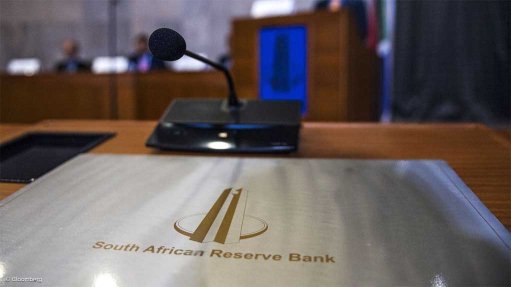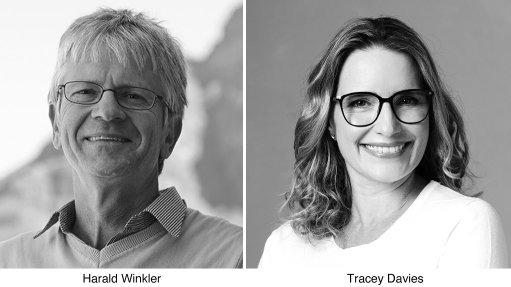Islamist violence continues to threaten desperately needed Moz LNG projects
Islamist extremist attacks on Macomia, in Mozambique’s northern Cabo Delgado province, come just as the country’s political elite gets into gear for October’s Presidential and Parliamentary elections. The May 10 attacks and earlier ones show that the Southern African Development Community (SADC) decision to withdraw SADC Mission in Mozambique (SAMIM) troops by July is premature.
Although South Africa’s President Cyril Ramaphosa has extended the mandate of the South African National Defence Force (SANDF) until December, the SAMIM withdrawal will place pressure on the Tanzanian and Rwandan forces that will remain in Cabo Delgado.
The attack on Macomia, where the SANDF has a base, follows earlier attacks by Ahlu Sunnah wa Jama’ah (ASWJ) militants, who had crossed into neighbouring Nampula province between April 25 and 26, attacking Manica, Nessiua and Mitaka villages. Although these attacks were comparatively small, they confirmed that Mozambican and allied forces have failed to contain the insurgency to Cabo Delgado, or to ASWJ’s initial strongholds in the province’s north-eastern districts.
President Filipe Nyusi praised local forces for repelling the attack in a bid to assure local communities that the army is capable of dealing with the insurgents. Local analysts say it is not. That ASWJ has supply lines that enabled it to cross the Lurio river to attack northern Nampula province will concern politicians and raises doubts about Mozambique’s ability to combat the insurgents without the support of regional forces.
The Islamist insurgency is rooted in northern Mozambique and neighbouring Tanzania. A recent research paper by the Washington-based Hudson Institute states that Mozambique’s Islamist militants have received financial and technical support from Islamic State (IS) through runners in Uganda and Tanzania and that, in May 2022, Islamic State Mozambique was designated a distinct province of IS.
But what will trouble Maputo’s political elite most is the threat the resumption of the insurgency poses to Mozambique’s single most significant economic project, the development of a $20-billion liquefied natural gas (LNG) project. The project – being developed by France’s TotalEnergies – has been on hold and all contracts suspended in force majeure clauses since a brutal attack on Palma in March 2021.
Then 300 Islamist fighters are reported to have killed over 1 000 civilians. Stability was only restored after Rwandan troops were deployed. By the end of 2023, Rwandan and SADC forces had successfully reduced Islamist militant forces’ numbers and attacks, which resulted in TotalEnergies suggesting it would resume operations in the first quarter of 2024. ExxonMobil, with partner Eni, is forging ahead with the Rovuma LNG project, also in Palma – although a final investment decision won’t be made until 2025.
Delays to the gas projects put Mozambique on a Sisyphus-like cycle. Islamist violence threatens the projects it desperately needs to come on stream so it has funds to address its debt. The country’s gas and associated infrastructure projects depend on Cabo Delgado being safe – which it is not, meaning more State security spending and ever more debt.
The Finance Ministry released its latest public debt report on April 23, which showed debt had increased by 5.2% in 2023 to $15.2 billion, or 73% of GDP. External debt servicing consumed $654.2-million in 2023, although this is less than at the peak of Mozambique’s financial crisis in 2018, when its debt-to-GDP ratio hit 104% . This was largely due to $2-billion in undisclosed debt following a major public- sector corruption scandal, known as the Tuna Bond scandal. Three State-owned companies borrowed about $1.15-billion ostensibly for tuna fishing and maritime security projects, against a government guarantee, hundreds of millions of which were subsequently paid out in bribes. The failure to disclose the debt caused significant distrust with the International Monetary Fund (IMF) and other donors, which the ruling party, Frelimo, has struggled to shake off.
The IMF has made a sovereign wealth fund to manage the proceeds of the gas projects a condition of any economic programme. A law passed in December created the fund and provides that the country’s central bank will manage the fund and will be allocated 40% of the yearly LNG revenue for the first 15 years. The remaining 60% will go straight into State coffers and will be split equally between the fund and the Treasury. Frelimo’s Council of Ministers approved regulations governing the management of fund in mid-March, which include professional investment fund managers and a quarterly report to Parliament on progress and use. However, success will depend on the revenue coming on stream and successful implementation of the law and administration of the fund.
Management of that implementation looks set to be handed to Daniel Chapo, who will lead the liberation party into elections in October. Frelimo’s election of Chapo surprised local commentators, as his name had not been included in most frontrunners’ lists. Whether Chapo is ‘a Nyusi man’ is in question – especially as several candidates dropped off Frelimo’s final candidates’ lists at the last minute and several committee members abstained. What is certain is that Chapo will secure the Presidency. The opposition is weak, concentrated in one or two provinces, and Frelimo has used the power of incumbency to the full to ensure its own success at elections.
Chapo, at 47, represents a new generation in the ruling party. He is the first President born after independence in 1975. A lawyer, he worked in television and then as an administrator in Nampula province until 2016, when he became governor of Inhambane province.
Unlike Nyusi and the Frelimo old guard, whose reputations were tainted by the ruling party’s integral involvement in the Tuna Bond scandal, local sources insist that Chapo is not corrupt but fear Frelimo’s system will corrupt him. With $90-billion in revenues over the next decades coming on stream and rural areas badly in need of investment in health, education, infrastructure and jobs to prevent Islamist or other forms of poverty-driven insurgency from developing, Chapo’s reputation for probity and as a competent administrator is to be welcomed.
Article Enquiry
Email Article
Save Article
Feedback
To advertise email advertising@creamermedia.co.za or click here
Press Office
Announcements
What's On
Subscribe to improve your user experience...
Option 1 (equivalent of R125 a month):
Receive a weekly copy of Creamer Media's Engineering News & Mining Weekly magazine
(print copy for those in South Africa and e-magazine for those outside of South Africa)
Receive daily email newsletters
Access to full search results
Access archive of magazine back copies
Access to Projects in Progress
Access to ONE Research Report of your choice in PDF format
Option 2 (equivalent of R375 a month):
All benefits from Option 1
PLUS
Access to Creamer Media's Research Channel Africa for ALL Research Reports, in PDF format, on various industrial and mining sectors
including Electricity; Water; Energy Transition; Hydrogen; Roads, Rail and Ports; Coal; Gold; Platinum; Battery Metals; etc.
Already a subscriber?
Forgotten your password?
Receive weekly copy of Creamer Media's Engineering News & Mining Weekly magazine (print copy for those in South Africa and e-magazine for those outside of South Africa)
➕
Recieve daily email newsletters
➕
Access to full search results
➕
Access archive of magazine back copies
➕
Access to Projects in Progress
➕
Access to ONE Research Report of your choice in PDF format
RESEARCH CHANNEL AFRICA
R4500 (equivalent of R375 a month)
SUBSCRIBEAll benefits from Option 1
➕
Access to Creamer Media's Research Channel Africa for ALL Research Reports on various industrial and mining sectors, in PDF format, including on:
Electricity
➕
Water
➕
Energy Transition
➕
Hydrogen
➕
Roads, Rail and Ports
➕
Coal
➕
Gold
➕
Platinum
➕
Battery Metals
➕
etc.
Receive all benefits from Option 1 or Option 2 delivered to numerous people at your company
➕
Multiple User names and Passwords for simultaneous log-ins
➕
Intranet integration access to all in your organisation


















